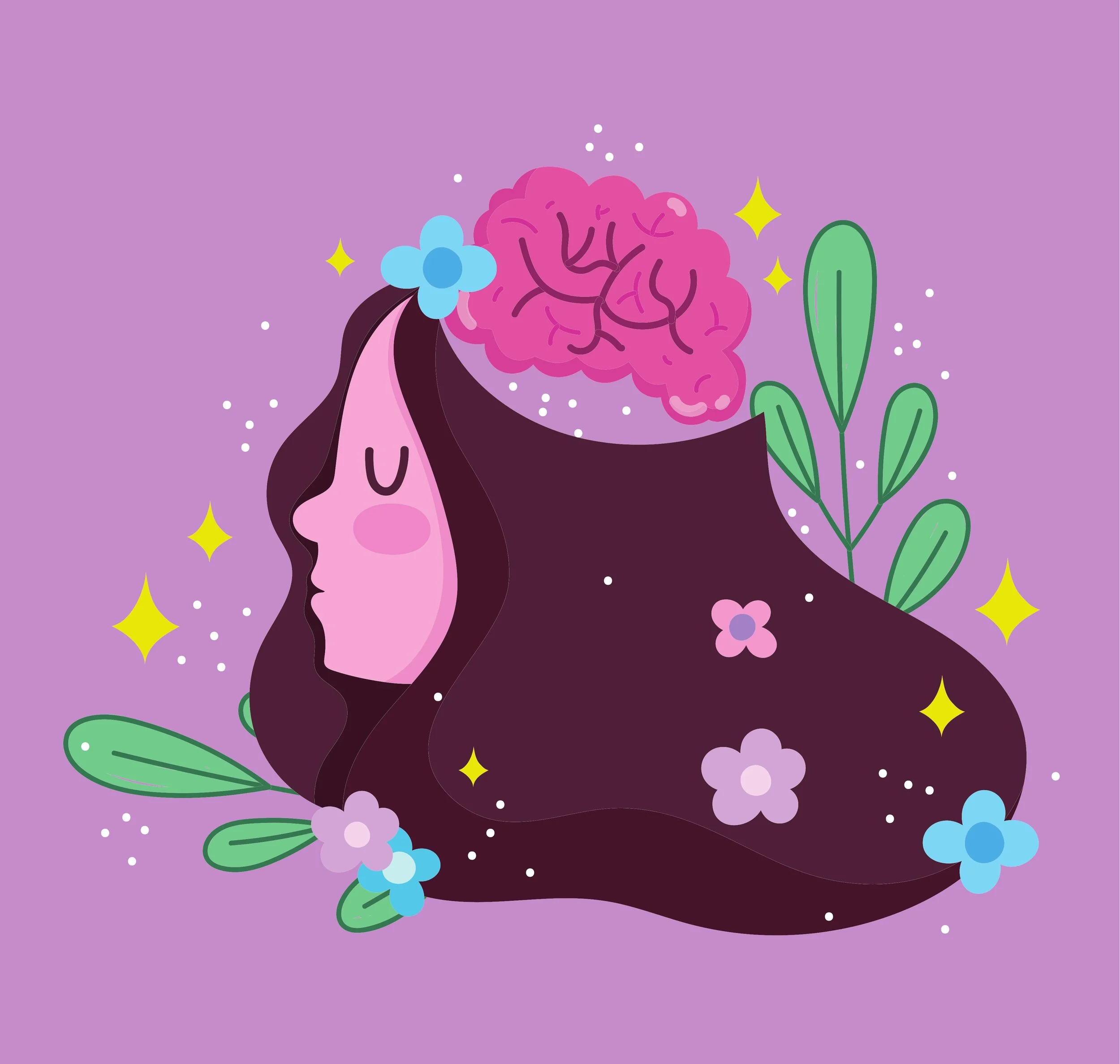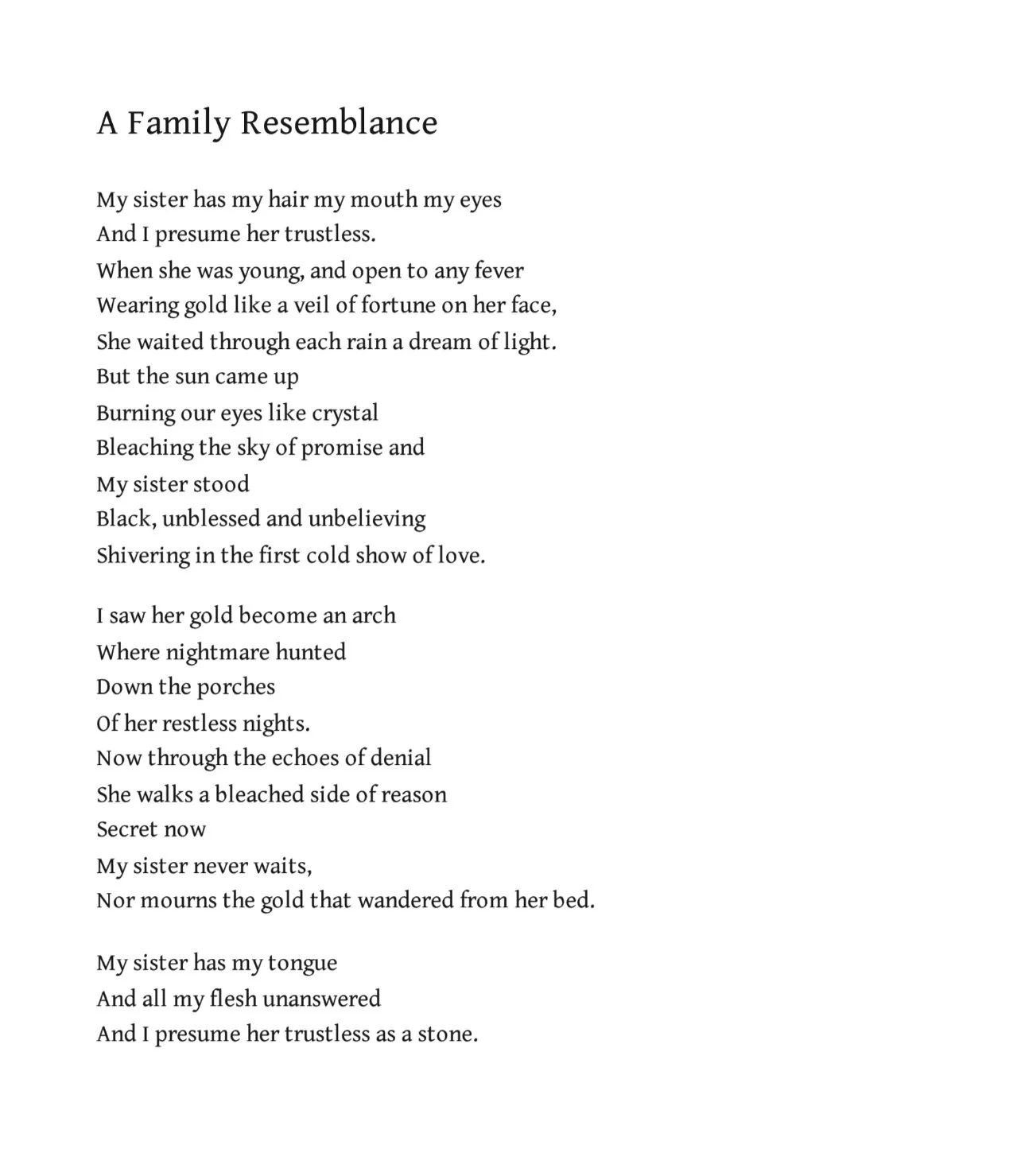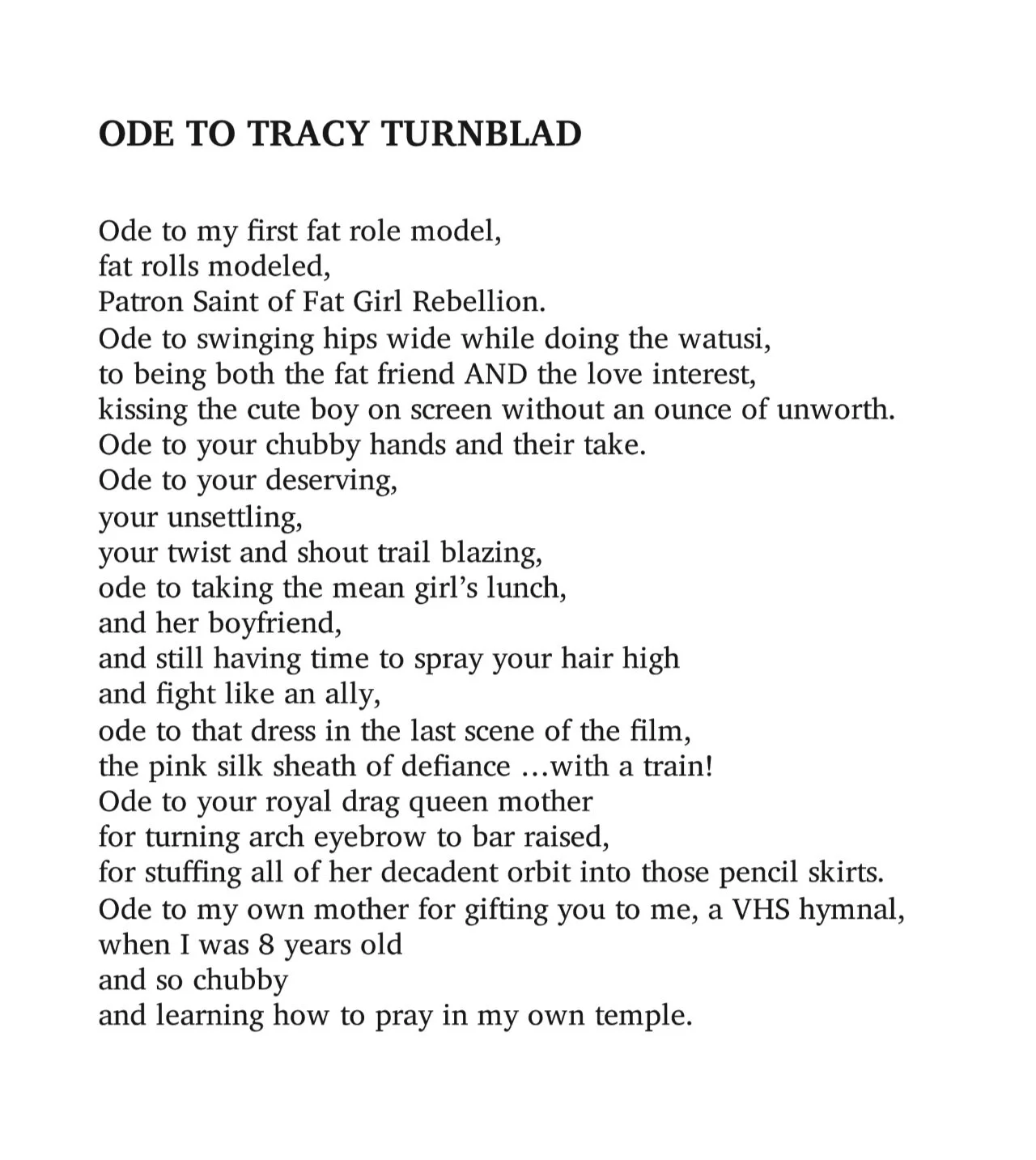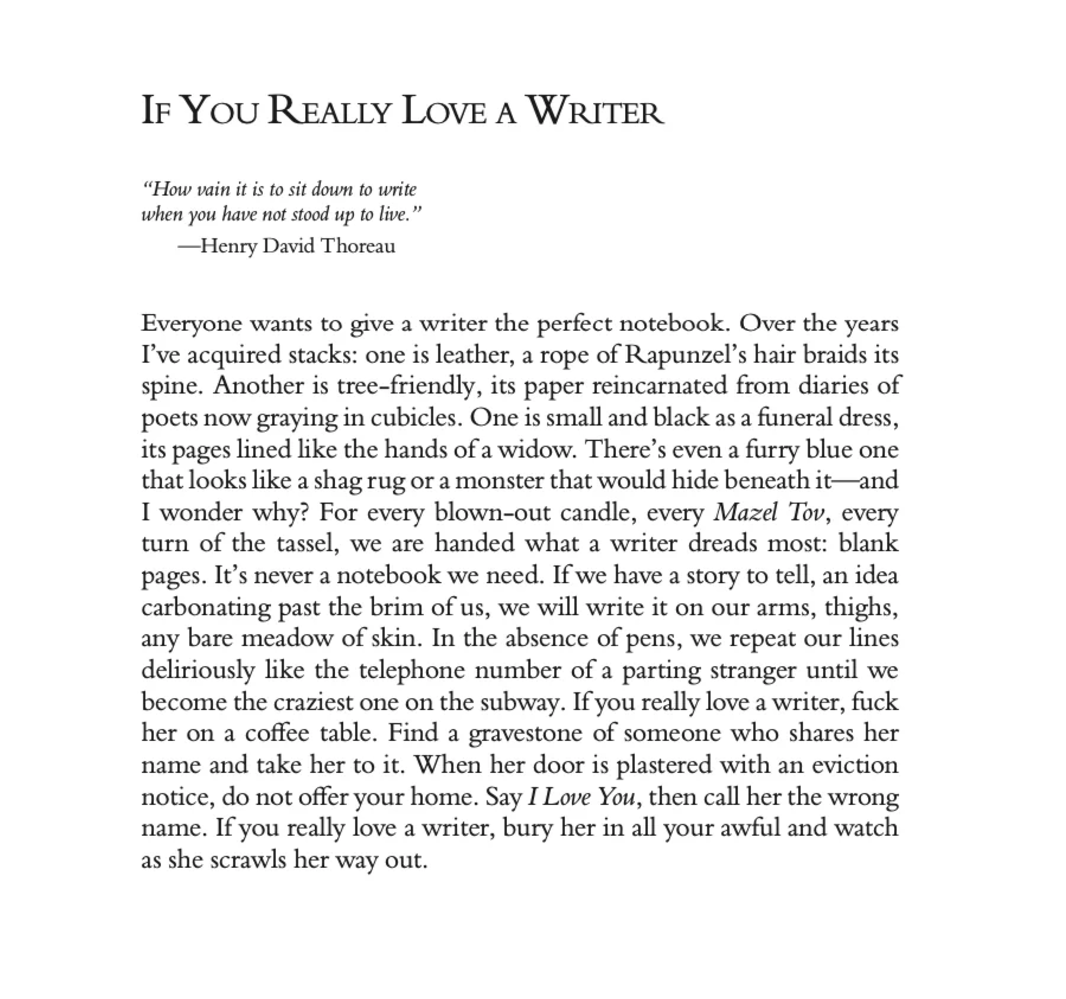7 Must-Read Poetry Collections
on Womanhood
Love, Rage, Joy, Blood.
by Holli Flanagan
Women’s writing has historically faced censorship and heavy criticism, and our current era is no exception, with censorship and other forms of silencing again on the rise. The seven collections listed below reveal the grit that has always been needed to exist as a girl or woman in this world. From the twentieth century through the wake of social movements like Me Too, these writers wield poetry as a weapon against abusive men and social constructs, as well as a careful tool of community-building, reflecting on the power of feminine rage, joy, and love. These contemporary poets take a hard look at the societal expectations of the gender roles of women—mother, wife, worker, lover, etc.—and lyrically refute the demands of our labor, our bodies, and our silence.
Life of the Party by Olivia Gatwood
(Random House, 2019)
In her first poetry collection, New American Best Friend, Gatwood writes that to be a woman, to be a girl, is to be seen as a bitch more often than not. And while her triumphant second collection Life of the Party continues to weave this thread, we are also offered a chilling addendum—to be a girl is also to be afraid. To be a girl is to be preyed upon and then called dramatic for wrapping our fear around us.
In the opening poem “Girl,” Gatwood writes, “I don’t think I’ll ever not be one,” drawing out girlhood as a lifelong experience, rather than something that passes from us. But girlhood, Gatwood writes, is not a soft thing. “Backpedal” reflects: “being the only girl means / making yourself lose when you’ve won too much.” “Eubank & Candelaria, 2009” asks: “What is justice when every girl / in the story is either dead or wanted dead?” And in “My Grandmother Asks Why I Don’t Trust Men”:
“I know my fear better
than I know
my own body.”
Gatwood doesn’t shy from rattling us, taking to task a society that glamorizes abuse, violence, and the murder of girls and women. Life of the Party demands that we look hard at girlhood in America—at the shape of that particular fear—and don’t look away.
The Collected Poems of Audre Lorde by Audre Lorde
(W. W. Norton, 2000)
The only collection in this list that encompasses a poet’s career, The Collected Poems of Audre Lorde includes over 300 poems, representing each of Lorde’s nine published volumes of poetry. Lorde regularly introduced herself as “Black, lesbian, mother, warrior, poet,” not to list separate roles but to demonstrate that all of these identifiers function together. For Lorde, they are impossible to pull apart. This collection of Lorde’s poetic work reflects this entanglement throughout the many eras of her writing.
This robust poetry collection spans 1968 to 1993, covering the small and large-scale revisions that many poems underwent during those years. In these poems, Lorde excavates what it means to exist as a Black woman in America in the twentieth century, reckoning with continued and repeated racial injustice, the magic and ache of motherhood, and the need to be loud in a social system that thrives on silence and obedience.
In “A Litany for Survival,” Lorde acknowledges fear as a weapon, calling for “those who exist at the shoreline” to speak rather than seek a false safety in silence. “A Woman Speaks,” calls up “old magic,” feminine rage, and Black feminism:
I have been woman
for a long time
beware my smile
I am treacherous with old magic …
I am
woman
and not white.
Lorde’s powerful voice runs headlong through the veins of each piece, offering readers overlapping narratives of immense love, anger, healing, and strength.
If My Body Could Speak by Blythe Baird
(Button Poetry, 2019)
“Watch me build an empire from the ashes / of everything that tried to destroy me.” So ends “Yet Another Rape Poem” in If My Body Could Speak by Blythe Baird, who also wrote Give Me a God I Can Relate To and, most recently, Sweet, Young and Worried. Baird’s second poetry collection invites us to see girlhood as a dangerous, triumphant, possibly even holy thing, rife with both hurt and joy. If My Body Could Speak wrestles, muddy and bright, with disordered eating, sexual violence, the relationship between mothers and daughters, and finding compassion for ourselves deep down in our marrow.
Baird’s viral poem “When the Fat Girl Gets Skinny” opens the collection with brutal honesty:
When I was little,
someone asked me
what I wanted to be
when I grew up
and I said,
small.
“Dresscode” appraises all the hands that grasp at girls’ bodies in the name of modesty: “Having a body implies public property / How can my body say something I don’t?” And finally, the quiet question
If Your Body Could Speak,
would she
forgive you?
reminds us that our body is at the center of it all, waiting patiently for us to meet her there. Baird’s commanding and gentle voice beckons us to sit with what both glitters and cuts us as girls, to turn it over and over again.
The Renunciations by Donika Kelly
(Graywolf Press, 2021)
Framed within the periods of NOW, THEN, and AFTER, Donika Kelly’s The Renunciations is a full-on reckoning with girlhood, vulnerability, and trauma. Tracing the pain of a childhood marked by sexual abuse and an adulthood contending with an ending marriage, Kelly’s work is, this writer argues, a practice in ruthless writing, approachable and accessible in laying out her hurt as both girl and woman. As part of this practice, Kelly omits any question of distance between herself and her speaker, with “Donika Questions the Oracle” making clear whose story the audience is witnessing.
Kelly pulls us with her as she cycles and recycles through memory, through the moments she carries with her, under the ever-watchful and patient eye of the Oracle character. “Continental Drift Theory” mourns a beginning that is now ending:
For two nights we slept
as two people who were once
in love.
In the midst of this making and unmaking of a marriage, we also witness the shifting emotions Kelly holds for the memory of an abusive father, often through sharpened, mythic metaphor. The Renunciations attends to the hard terrain that must be traveled before new possibilities can find their way in, before a new home can be “started / with a razing.”
Fat Girl Finishing School by Rachel Wiley
(Button Poetry, 2014; re-released in 2020)
Rachel Wiley’s Fat Girl Finishing School teems with vibrant portraits of self-love, shame, and the triumph of choosing something brighter than shame. Wiley’s debut poetry collection is, in many ways, a confessional. In “Blood Tongue,” Wiley reveals her “survivor’s guilt” at “passing” as a white woman, with
“my white mother,
my white mother tongue,
my code switch,
my privilege.”
“10 Honest Thoughts on Being Loved by a Skinny Boy” speaks plainly to Wiley’s desperate searching “for a punchline” in her relationship.
But Wiley also confesses her joy through several “Love Letters” to her body. And “Naked Atonement” gives up the ghost of shame of her body entirely: “You are deserving of war cries and soft love both, / of gentle hands and unbracing.” Throughout these poems, Wiley’s honesty is resplendent. She tells us her own version of what it means to inhabit a fat body in a space that demands women be small or nothing. What it means to not feel like her identity is always “enough.” The razor-edged panic of feeling too seen and unseen all at once.
Each piece is so beautifully specific to Wiley’s experiences, yet these poems reach through and remind other women that they have been here too, so many times. They have felt the shame, the anxiety, the love, the power—found in different ways, different places perhaps, but still there. There is an invitation to warm conversation here, bolstered by Wiley’s direct address to the reader:
Remember that you have that choice
because there were women before you
who swallowed all of the kitchen knives
in order to spare your fingers.
After the Witch Hunt by Megan Falley
(Write Bloody Publishing, 2012)
Sharp, darkly humorous, and at times even a little grotesque, Megan Falley’s first poetry collection After the Witch Hunt unsilences the women in its pages and lets out their screams. Covering figures from the Nassau County women who developed breast cancer from chemical sites to Penelope Pussycat, these poems are unrelenting, searching for every scrap of what has been hidden.
Many of Falley’s poems note “from my mother’s perspective” just underneath their title, with the poet calling forward the rougher demands of motherhood that deserve their place in the story. Other poems, like “Family,” “Boy Scout,” and “The First Time I Met His Mother,” viscerally lay out how women and girls are so often regarded as trophies from a hunt, how men steal ownership of our bodies, how their violence is a “joke” we just don’t know how to take. Falley’s poetry bites back at these men, offering a recipe for “Adam’s Apple Pie” that ends with “Serves: Him. Right” and finally giving Penelope Pussycat her say on rape culture:
It wasn’t because of his stench that I inched off
those cliffs—but how he pretended my refusal
was foreplay.
Falley’s writing of girlhood’s truths is piercing, resolute, and unblinking—these poems let all hell loose.
And Still I Rise by Maya Angelou (1978)
In a list of poetry on womanhood, I’d be remiss not to include Maya Angelou’s And Still I Rise. Broken into three parts—Touch Me, Life, Not Softly; Traveling; And Still I Rise—Angelou’s collection remains as applicable today as it was in 1978. Throughout each poem, Angelou holds her identity as a Black woman, daughter, and mother up to the light. The collection makes space for themes of feminine power, joy as protest, and importance of love in Black community building alongside more painful experiences of systemic racism, violence, and grief. At the heart of this collection is a lesson on the grit required to endure as a woman, especially as a woman of color.
“Woman Work” plainly lays out the roles that women are expected to fulfill—mother, cleaner, nurse, laborer, to name a few—with the speaker searching for some sort of rest by the end of the poem. Angelou’s speaker in “A Plagued Journey” mourns,
“Gloom crawls around
lapping lasciviously
between my toes, at my ankles.”
But the eponymous poem “And Still I Rise” offers a combination of grit and hope in the midst of ache: “You may trod me in the very dirt / But still, like dust, I'll rise.” Angelou’s celebration of Black femininity also winds its way through the collection, especially in poems like “Phenomenal Woman” and “Ain’t That Bad?”: “Wrappin’ up in Blackness / Don’t I shine and glow?” Throughout these poems, Angelou maintains and honors the unique complexity of womanhood—the pain, the community, the wild joy—and the ability for hope to survive even where it doesn’t seem likely.
Holli Flanagan is a writer and editor from North Carolina. A graduate of Appalachian State University, she is currently an English PhD candidate at the University of Delaware, where she studies contemporary women’s memoir. Her poetry has most recently appeared in Gnashing Teeth Publishing’s The Cost of Our Baggage anthology, Samfiftyfour, Ink & Marrow, and Anti-Heroin Chic.
















